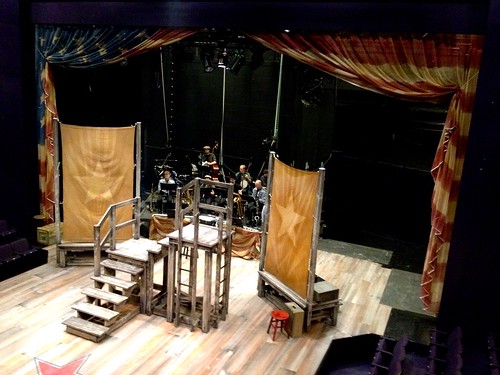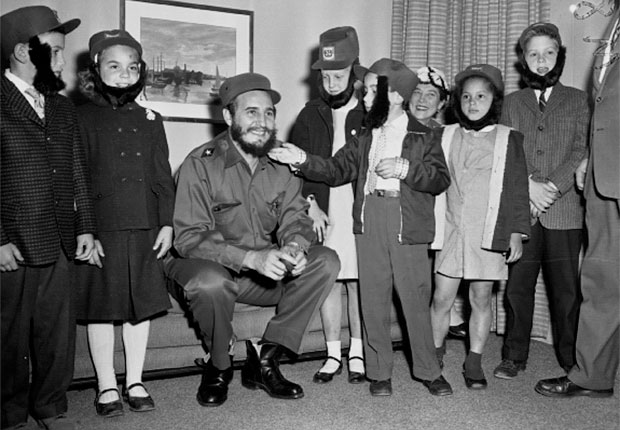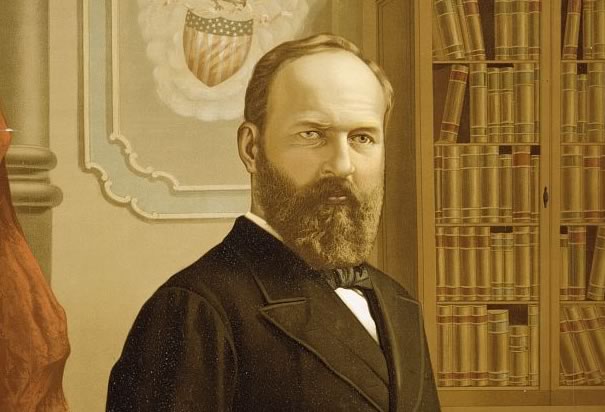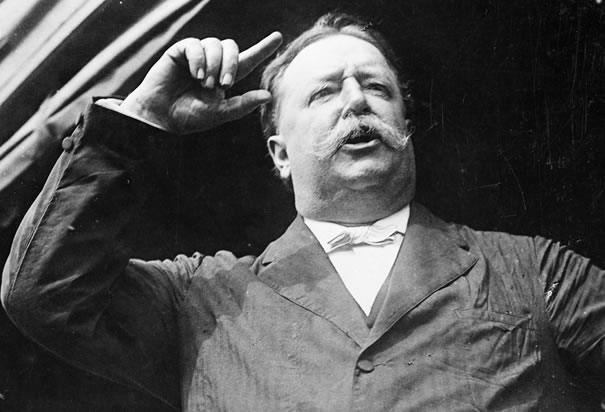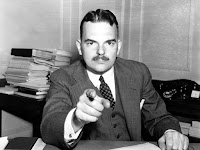From
"41: A Portrait of My Father," by George W. Bush:
IN THE SUMMER of 1948, George H.W. Bush had two immediate tasks: start his job, and find a place for Mother and me to live. While he scouted for housing in Odessa, Texas, we stayed with my great-grandfather G.H. Walker at his summer house in Kennebunkport, Maine. Life was a lot more comfortable on Walker’s Point than in West Texas. In those days, Odessa was a town of under thirty thousand people located twenty miles from its sister city of Midland and more than three hundred fifty miles from the nearest major airport in Dallas...
[My father] didn’t know a single person when he arrived. People he met were more like the folks in the Navy than those he knew back home. Odessa was a blue-collar town, home to oil field laborers: mechanics who fixed the equipment and roughnecks who worked on the rigs. One of my father’s coworkers once asked him whether he’d gone to college. As a matter of fact, Dad replied, he had just graduated from Yale. The fellow thought for a second and said, “Never heard of it.” The fashion in West Texas was different too. Dad once walked out of the house wearing Bermuda shorts. After several truck drivers honked at him, he went back home and packed away the Bermuda shorts for good. Even the food was unfamiliar. My father always remembered the first time he saw someone order a West Texas delicacy: chicken-fried steak.
Dad found a house on East Seventh Street. The good news was that it had a bathroom, unlike most residences on the street, which had outhouses. The bad news was that we had to share the bathroom with two women who lived on the other side of the duplex— a mother-daughter pair who made their living by entertaining male clients throughout the night....
I'm reading the whole book, but I
had to tell you about that men-in-shorts business. And sharing a bathroom with prostitutes is quite something.
I saw that this book is #1 on
the Amazon list of books about U.S. Presidents,
so I wanted to see what else was on that list. Who are the Presidents that people are reading books about these days? The top 20 is dominated by Bush (this book, in various, versions as well as "Decision Points"), Theodore Roosevelt, and JFK. There's also one book about Lincoln and one about — was he really a U.S. President? — Jefferson Davis. I was going to say JFK seems to be the only Democrat of interest, but one of the Teddy Roosevelt books is
"The Roosevelts: An Intimate History," and that includes FDR. And let's be fair:
Jefferson Davis was a Democrat.
Moving onto the next 20 — and wondering how far I need to go to get to Barack Obama — we get a book about George Washington and 6 books about Lincoln and 4 more about Teddy Roosevelt. There are those old David McCullough books about John Adams and Harry Truman. There's
a book about the assassination of James Garfield! There's a book about LBJ and Ronald Reagan,
"Landslide: LBJ and Ronald Reagan at the Dawn of a New America." Who reads that? Reagan people or LBJ people?
Are there LBJ people? There's a book about Reagan and another book about Bush I.
Finally, on the third set of 20, at #49, there's a book about Obama, and — why does this seem so sad? — it's "Dreams From My Father." I'm reading Bush II's book about his father, and now here's Obama's book about his father, and it's not really a book about his father. It's a book about himself. And it's not a book about a President. It's a book by a man who didn't know that some day he'd be President. And it's as if he's become small and little known all over again, even as
he is still President.
I keep searching for another book about Obama. I have to go all the way to the last page on this list that ends at 100. There, at #85, it's "The Audacity of Hope." This symbolism of isolation and apathy is painful. Is Obama the only one who cares about Obama?
And what about Bill Clinton? Not a single book about Bill Clinton in the top 100 books about U.S. Presidents? Isn't he the hero of the Democrats? Isn't he on a heroic quest to retake the White House in a clever end run around the 22nd Amendment? Doesn't anyone care?
Now, these are
historical biographies and memoirs. Maybe that genre doesn't jibe with the liberal/progressive mentality. Maybe there's something conservative about reading history. Checking
the overall bestseller list at Amazon,
I'm not finding anything oriented to liberal politics. I see that Bush's "41" is #2. #1 is a children's book, as is much of the top-selling reading material. Isn't it funny how we love to "raise a reader"? But do they read later? Maybe just not books. We grownups mainly want to read the internet. (
I started reading the internet, and I just couldn't put it down.)
What about Chuck Todd's book about Obama,
"The Stranger: Barack Obama in the White House"? That's gotten some good publicity. You might think Democrats would read that. But it's #1,629 in Books. At least that's better than Hillary Clinton's "Hard Choices." I guess it was an easy choice not to read that book. "Hard Choices" languishes at #1,778.
